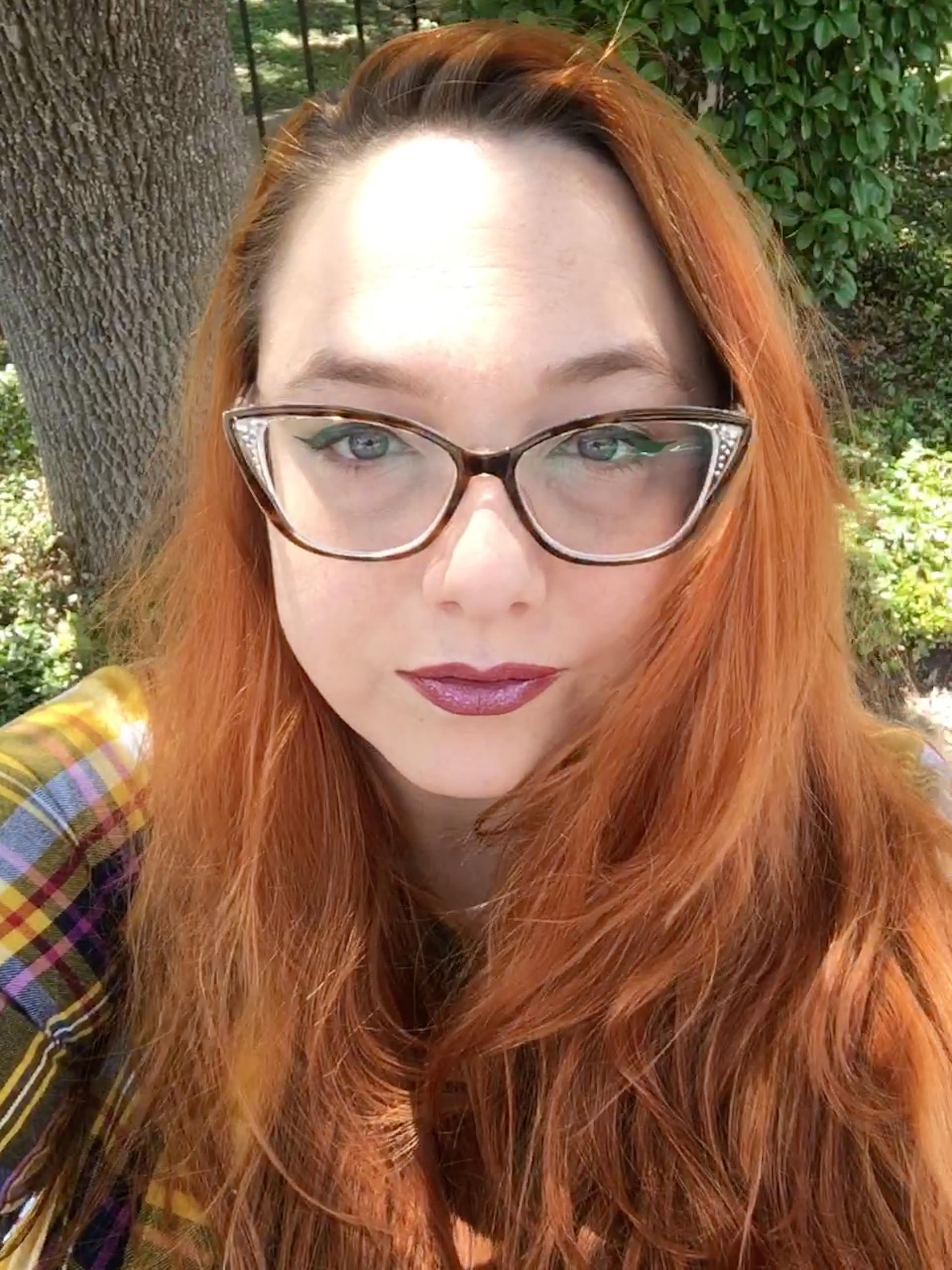ISSN: 1941-4137
POETRY THAT ENACTS THE ARTISTIC AND CREATIVE PURITY OF GLASS
POETRY THAT ENACTS THE ARTISTIC AND CREATIVE PURITY OF GLASS

E. Kristin Anderson is a poet and glitter enthusiast living mostly at a Starbucks somewhere in Austin, Texas. She is the editor of Come as You Are, an anthology of writing on 90s pop culture (Anomalous Press), and her work has appeared in many magazines. She is the author of nine chapbooks of poetry including Pray, Pray, Pray: Poems I wrote to Prince in the middle of the night (Porkbelly Press), Fire in the Sky (Grey Book Press), 17 seventeen XVII (Grey Book Press), and Behind, All You've Got (Semiperfect Press). Kristin is a poetry reader at Cotton Xenomorph and an editorial assistant at Porkbelly Press. Once upon a time she worked nights at The New Yorker.
Also by E. Kristin Anderson:
We're Doing Witchcraft
Behind, All You've Got
Fire in the Sky
She Witnesses: Found Poems
17 Days
Pray Pray Pray: Poems I wrote to Prince in the middle of the night
A Guide for the Practical Abductee
A Jab of Deep Urgency
Previously in Glass: A Journal of Poetry:
This Is How I Am A Monster
Raiding
The Worn Places Gone
Cunt, Indictment
More Than Biology I Ride Misandry Like a Bicycle Without a Helmet
The Whole World Is a Church if You Can Start Another Fire
Will I Still Be Waiting
(after Tori Amos)
It’s been here — the ghost I scraped from the floor that night
after you left. I wash it and hang it in the window to catch the sun.
What could blossom here other than the stains my body leaves?
(You think I don’t know, but I can hear that.) Even the mermaids
have to bleed but I swallow a pill for it now. Lead-heavy I lay down
and peel off my jeans and all these years shiver in my thighs and I know
the little scream has finally dislodged from the trap in my throat and
I’ll just have to find a new place to lock it away. How many basements
will I need to bury this loss, a cold justice to carry quiet into autumn.
When my bank account dips under twenty-five dollars again I’m counting
cups of coffee like days to cross out on a calendar. I can hear that.
I tell every man who’s disappointed me that I won’t bite but they still
see the sin in me, that antichrist glow. When the words don’t come I’ll
drag another bag of garbage out to the dumpster. My home will never be
empty of it and I scream into bag after bag and tie them closed with
something awful you said to me. Yeah, I collect your insults in a Dixie cup.
My depth perception is only as real as my eyes and I’ve taught myself
not to care that the shadows could be anything when the lights go out.
I can hear that. Somehow beyond the fog I’ve found another morning and
I hold my funny mouth to the water. Still I’ve found that it’s so easy to catch
the falling sky when you’re already flat on your back. The garbage truck
bleats in the parking lot and I spread myself out against the mattress
as if making myself larger could make you shut up. I feel the point of
every spring. My cat licks the salt from my skin again and when the clouds
cast a shadow into my home I collect it for myself, put my name on it,
lock it away for when you tell me I’ve imagined the thunder — I can hear that.
This poem is from a manuscript I'm working on collecting poems in response to songs by women songwriters across several decades. I've been thinking a lot, while writing these, about how they reflect and refract when juxtaposed with both personal and national traumas. How many of these songs were written in the 90s and how much they speak the truth of our lives twenty years later. This poem — written after "Silent All These Years" — especially felt important when I was writing it, thinking about the denial women are expected to live in, how Tori's refrain of "I can hear that" is also saying, "I'm here and I've been here this whole time." Is also saying, "I refuse to be invisible."
Glass: A Journal of Poetry is published monthly by Glass Poetry Press.
All contents © the author.
All contents © the author.





